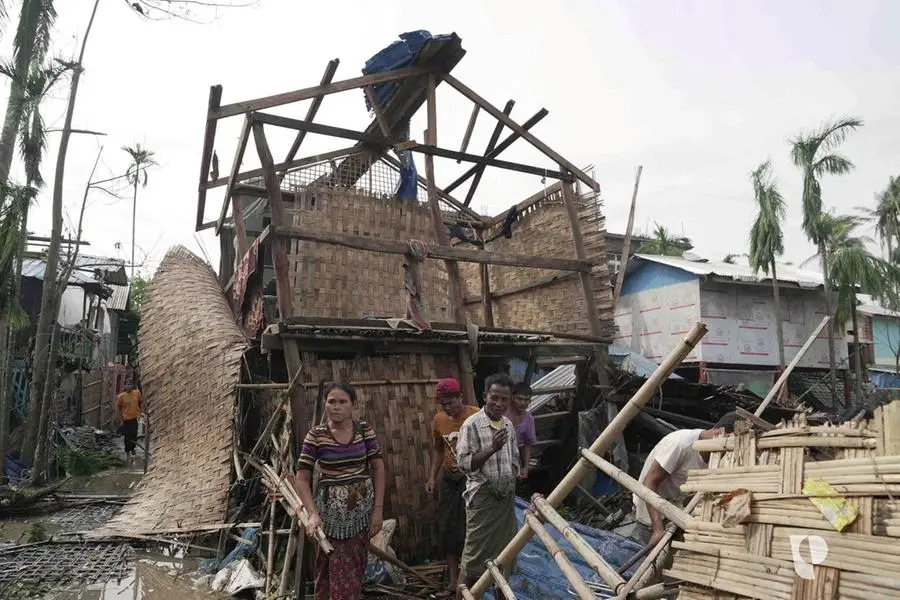PHOTO
The United Nations on Tuesday said it needed $375 million in funding to get food, medicine and other relief supplies to millions of people affected by a cyclone that devastated parts of Myanmar and Bangladesh.
Western Myanmar and provinces in neighbouring Bangladesh, where there is a large population of Rohingya Muslims and refugees, bore the brunt of Cyclone Mocha on May 14, which is estimated to have killed hundreds and caused widespread damage.
For Myanmar, the U.N. said it was appealing for $122 million in extra funding and for $211 million of existing funds to be channelled toward cyclone response, while a separate $42 million was needed for Bangladesh.
"We are now in a race against time to provide people with safe shelter in all affected communities and prevent the spread of water-borne disease," said the U.N.'s resident coordinator for Myanmar, Ramanathan Balakrishnan, adding that donors needed to "dig deep" to support relief efforts.
The appeal comes as humanitarian organisations struggle to access the worst-hit areas due to storm damage and they await permission from Myanmar's military government.
A senior aid worker who spoke on condition of anonymity told Reuters supplies were sitting in warehouses in the commercial capital Yangon as they awaited clearance more than a week after the disaster.
"If we had full, unimpeded access, we would have been able to empty our warehouses.. send (supplies) to Sittwe and deliver assistance on a much greater scale," the aid worker said, adding that aid agencies were not speaking out publicly for fear of retribution from the military.
A spokesperson for the junta could not be reached for comment. The military leadership has said 145 people died in the storm and that aid is being delivered to affected areas.
One survivor in western Myanmar said by phone that including blankets and mosquito nets had been trickling into his village of roughly 400 households, many of which were destroyed, since May 19.
"Before that, those who could afford it, bought food and those who couldn't just starved. We don't have medicine or clinics and are very much in need of that. We also need more food supplies," said the survivor, who declined to be identified for safety reasons.
The funds would assist 1.6 million people affected across five areas of Myanmar - Chin, Sagaing, Magway, Kachin, and Rakhine, which has a large Rohingya Muslims community, a persecuted minority that successive Myanmar governments have refused to recognise.
In Bangladesh, a "sophisticated disaster management system" saved many lives but infrastructure and homes were heavily damaged, said Gwyn Lewis, the U.N.'s resident coordinator in Dhaka.
(Reporting by Reuters Staff; Additional reporting by Poppy McPherson in Bangkok and Emma Farge in Geneva; Writing by Kanupriya Kapoor; Editing by Ed Osmond)





















